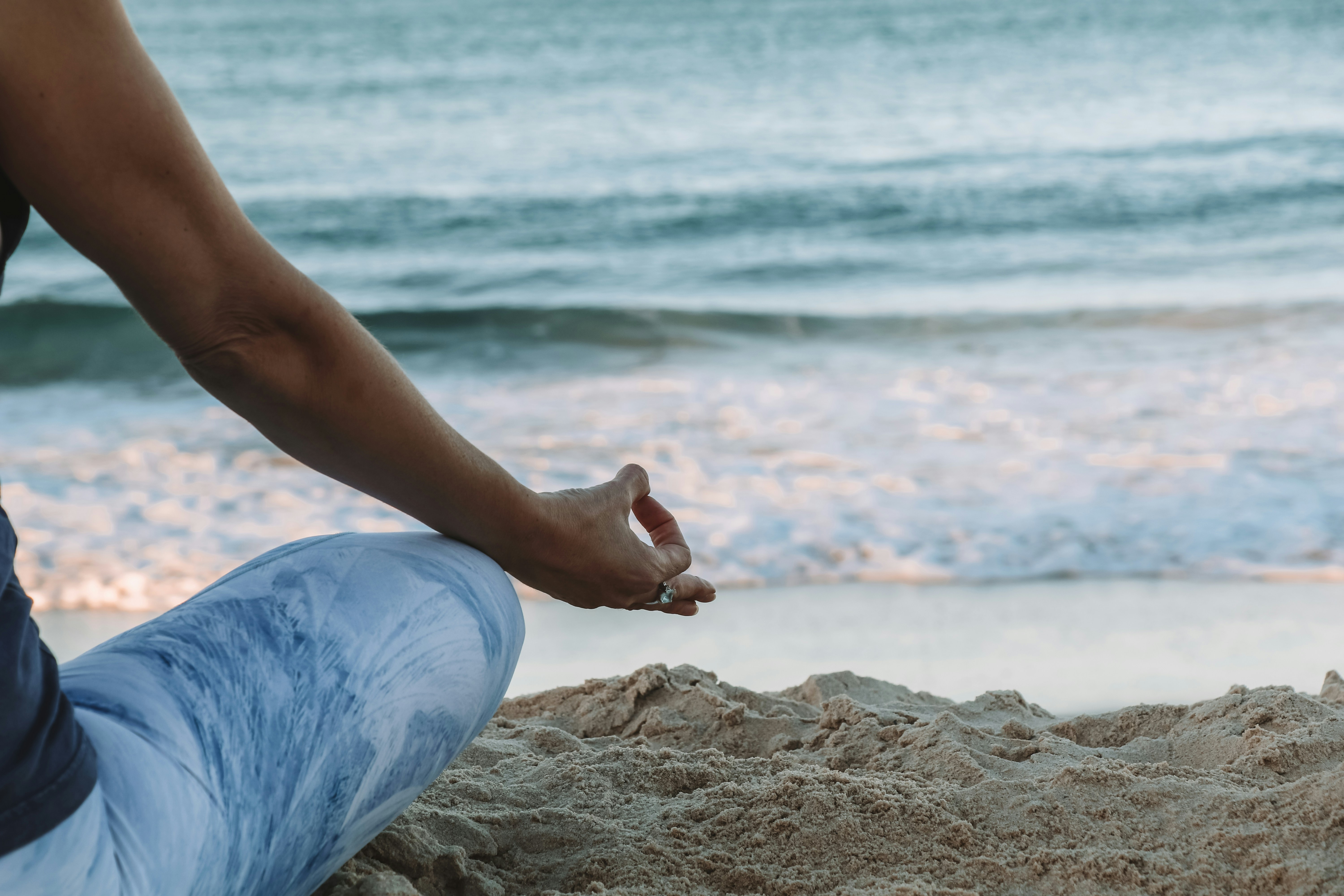This article explores how holistic practices can complement medical supervision in easing the discomfort of drug withdrawal, highlighting the importance of addressing the whole person—mind, body, emotions, and spirit. It delves into the science behind mind-body approaches, ancient healing traditions, and the role of nutritional support and self-care routines in managing withdrawal symptoms and promoting lasting recovery. The article emphasizes that while holistic methods offer valuable support, medical guidance is crucial for safe and effective detoxification.
Drug withdrawal can feel like climbing a mountain in the dark – challenging, disorienting, and intensely uncomfortable. If you or someone you care about is facing drug withdrawal, know that you’re not alone. The path to recovery is rarely easy, but it is absolutely possible. While medical supervision is paramount, there are complementary approaches that can provide significant support and comfort during this challenging time. This is where holistic practices come in.
It’s encouraging to see that overdose deaths in the United States fell by nearly 25 percent from 2023 to 2024, suggesting that comprehensive approaches to treatment and recovery are making a real difference. Let’s dive into how you can leverage these practices to support your journey.
Important Note: This blog post is intended for informational purposes only and does not constitute medical advice. Never attempt to withdraw from drugs or alcohol without proper medical supervision. Withdrawal from certain substances can be dangerous and even life-threatening. Always consult with a qualified healthcare professional for personalized guidance and treatment.
____________________________________________________________________
Understanding the Challenge: Drug Withdrawal and the Need for Holistic Support
Drug withdrawal is the body’s reaction to the absence of a substance it has become dependent on. Symptoms can range from mild discomfort to severe physical and psychological distress. The specific symptoms and their intensity depend on the substance used, the duration of use, and individual factors. Opioid withdrawal, for example, can bring on symptoms within hours of the last dose, while alcohol withdrawal can lead to dangerous complications requiring immediate medical intervention. Even stimulant withdrawal, though not always physically dangerous, can cause intense depression and cravings.
The reason withdrawal is so difficult lies in the way drugs alter the brain. Repeated substance use changes brain chemistry, particularly in reward and stress response pathways. When substance use stops, the brain struggles to readjust, leading to a deficit in pleasure-inducing neurochemicals and a surge in stress hormones.
Beyond the initial withdrawal phase, many experience post-acute withdrawal symptoms (PAWS), which can linger for months or even years. These symptoms, including anxiety, depression, and insomnia, increase the risk of relapse. That’s why developing long-term coping strategies is essential.
While medications like buprenorphine for opioid withdrawal and benzodiazepines for alcohol withdrawal can be life-saving, access to treatment remains a significant issue. Data shows that only a fraction of those who need treatment actually receive it.
This is where holistic practices can bridge the gap, offering accessible, complementary support that addresses the whole person. Holistic withdrawal support recognizes that addiction and recovery involve not just the physical body, but also the mind, emotions, social connections, and even spiritual wellbeing.
The Science Behind Mind-Body Approaches to Withdrawal
Mind-body practices leverage the connection between the brain, mind, body, and behavior to promote healing. Practices like meditation, yoga, and breathing exercises have been shown to positively impact brain structure and function, immune system activity, and stress hormone levels.
Meditation and mindfulness, for example, can increase gray matter density in areas of the brain responsible for attention, emotion regulation, and self-control. This can be invaluable in managing cravings and emotional volatility during withdrawal. Regular meditation and yoga practice have also been shown to increase levels of GABA, a neurotransmitter that promotes calmness.
The stress-reducing effects of mind-body practices are particularly relevant. Substance use often dysregulates the body’s stress response system, leading to heightened anxiety and discomfort during withdrawal. Mind-body practices activate the parasympathetic nervous system, promoting relaxation and reducing the release of stress hormones, such as cortisol.
How does yoga help with anxiety during drug detox? Yoga combines physical movement, controlled breathing, and meditative attention to release tension, activate the parasympathetic nervous system, and provide respite from anxious thoughts. Research consistently demonstrates that yoga can significantly reduce anxiety symptoms during withdrawal.
How long should I practice meditation to manage detox symptoms? Consistency is key. Aim for daily practice, starting with even just 5 to 10 minutes and gradually increasing as you feel comfortable. Regular practice, even in short bursts, can have a cumulative effect on your ability to manage stress and emotions.
Ancient Practices for Modern Recovery: Traditional and Cultural Approaches
Many holistic practices have roots in ancient healing traditions. These practices offer time-tested wisdom about well-being and inner peace.
Yoga
Originating in ancient India, yoga unites body, mind, and spirit. It reduces stress, improves sleep, and enhances overall quality of life. Gentle styles like restorative yoga are best during acute withdrawal, while more vigorous styles can be beneficial later in recovery.
Meditation
Training attention and awareness, mindfulness meditation reduces cravings, improves emotional regulation, and lowers relapse rates. It helps you recognize cravings as temporary mental events.
Acupuncture
A cornerstone of traditional Chinese medicine, acupuncture restores balance and promotes healing by stimulating specific points on the body. Is acupuncture effective for reducing drug cravings during withdrawal? Research suggests it can reduce cravings, anxiety, and insomnia.
Qigong
Combining gentle movements, breath control, and meditation, Qigong enhances the flow of vital energy. It reduces withdrawal symptoms and supports sustained abstinence.
Forest Bathing
Known as shinrin-yoku in Japan, forest bathing involves mindful immersion in nature. It reduces stress hormones, anxiety, and depression. One study found that forest therapy can significantly reduce or even eliminate depression levels in people with addiction.
Sweat Lodges
Ceremonial practices in many Indigenous cultures, sweat lodges offer spiritual, physical, and communal healing. They promote detoxification, build resilience, and provide cultural reconnection.
Natural Support Through Bodywork and Sensory Practices
Complementary practices that address the physical body and sensory experience can provide additional support during withdrawal.
Massage Therapy
Benefits of massage therapy for detox and muscle aches include releasing muscle tension, improving circulation, and activating the parasympathetic nervous system. It reduces anxiety, improves sleep, and alleviates withdrawal symptoms.
Aromatherapy
The therapeutic use of essential oils can manage withdrawal symptoms. Which essential oils are safe to use for drug withdrawal discomfort? Lavender reduces anxiety and promotes sleep. Peppermint alleviates nausea, and chamomile eases anxiety.
Mindfulness and Breathing Techniques
Using mindfulness and breathing techniques during acute withdrawal provides immediate tools for managing symptoms. Slowing and deepening the breath activates the parasympathetic nervous system.
Nutritional Support and Natural Remedies During Withdrawal
Managing withdrawal with holistic nutrition and diet is crucial. Substance use often leads to nutritional deficiencies that impair physical and mental health. A balanced diet supports the body’s healing processes and can influence the severity of withdrawal symptoms.
Can a specific diet ease the physical pain of drug withdrawal? While no diet can eliminate symptoms, nutritional approaches can help. High-fiber foods address constipation, complex carbohydrates stabilize blood sugar, and adequate hydration is essential.
What are the best natural supplements for opioid withdrawal symptoms? Consult with a healthcare provider before starting any supplements. N-acetyl cysteine may reduce cravings, magnesium can help with muscle aches, and omega-3 fatty acids support brain health.
Herbal remedies and teas for calming the nervous system during detox have been used for centuries. Chamomile tea reduces anxiety and promotes sleep, while valerian root has stronger sedative effects.
Creating a Self-Care Routine for Emotional Balance in Recovery
Creating a self-care routine for emotional balance in recovery is vital. This includes setting realistic goals, practicing gratitude, engaging in enjoyable activities, and connecting with supportive people. Remember to prioritize sleep, eat nutritious meals, and stay hydrated.
What are non-pharmacological ways to cope with withdrawal insomnia? Establish a regular sleep schedule, create a relaxing bedtime routine, and avoid caffeine and alcohol before bed.
The role of exercise in reducing post-acute withdrawal symptoms (PAWS) is significant. Exercise improves mood, reduces stress, and helps manage the physical discomfort of withdrawal.
Comparing holistic detox vs medical-assisted withdrawal highlights that while holistic practices can provide valuable support, medical supervision is essential, especially for substances like alcohol and benzodiazepines.
Withdrawal is a challenging but temporary phase. By combining medical supervision with holistic practices, you can find comfort, build resilience, and pave the way for lasting recovery.
If you or someone you know is struggling with substance abuse, Mountainside can help. We offer comprehensive and individualized treatment programs that meet people where they are. Speak to an admissions specialist today to discover what your options are.
If you or a loved one is struggling with addiction, Mountainside can help.
Click here or call (888) 833-4676 to speak with one of our addiction treatment experts.

 By
By 







